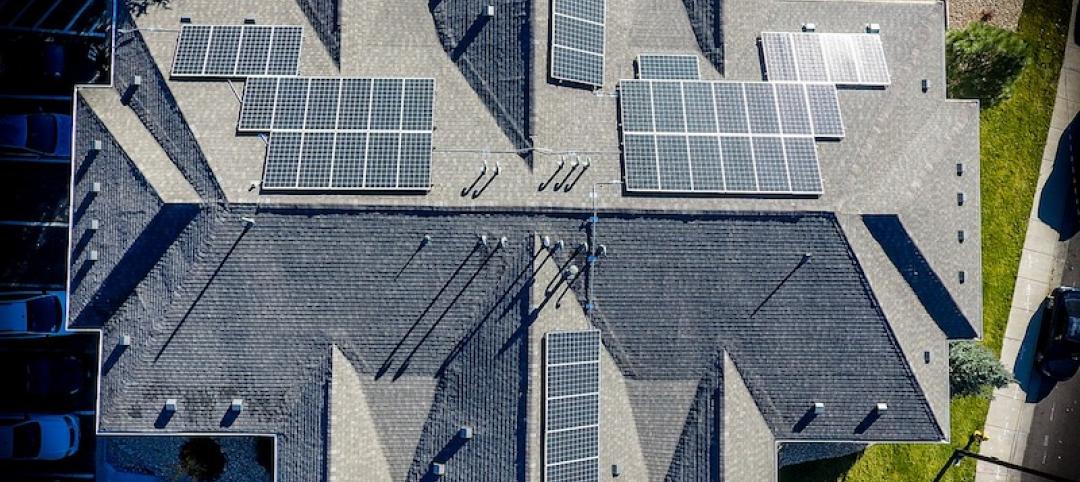ASHRAE has released a new standard that defines the terms "zero Energy" and "zero carbon" to describe buildings.
ANSI/ASHRAE Standard 228-2023, Standard Method of Evaluating Zero Net Energy and Zero Net Carbon Building Performance, sets requirements for evaluating whether a building or group of buildings meets a definition of “zero net energy” or a definition of “zero net carbon” during operation. The standard draws from other ASHRAE standards to address energy and carbon flows across a site boundary, their measurement, and their balance.
“Achieving a zero energy building has been viewed by many as a difficult goal to meet, with unforeseeable roadblocks and differing guidance,” said Keith Emerson, P.E., Life Member ASHRAE, chair of the Standards Project Committee 228. Standard 228 provides a consistent method for determining whether new and existing sites have reached zero energy. We hope this standard will become a helpful resource for building professionals in strategic decarbonization planning.”
Features of Standard 228 include:
- Allowances for sites that lack the means to produce adequate renewable energy, while placing additional requirements on the use of external carbon and renewable energy in the calculation.
- Defined calculation of energy in terms of source—a multiplier on the energy crossing the site boundary including energy used or lost in extraction, generation, and transit to the site.
- The main energy calculation made in terms of annual average factors. Allowance is made for the calculation of individual hours where data is available.
Related Stories
Codes and Standards | May 24, 2018
‘Amazon tax’ could slow Seattle’s construction boom
City imposes employer head count tax to fund affordable housing.
Codes and Standards | May 23, 2018
AAMA releases 2017/2018 fenestration market studies
Offers forecasts of industry trends.
Codes and Standards | May 22, 2018
Registration open for 2018 National Energy Codes Conference
U.S. Department of Energy event to be held July 15th-17th in Austin.
Codes and Standards | May 21, 2018
New standard tests quietness of floors
ASTM International method will help manufacturers test their flooring materials.
Codes and Standards | May 17, 2018
California will require solar panels on most new homes
Projected to add $10,000 to cost of new homes.
Codes and Standards | May 16, 2018
New resources offer tips on off-site construction
NIBS documents address using pre-cast concrete, and commercial and legal considerations of modular construction.
Codes and Standards | May 15, 2018
Blast testing of loaded mass timber structures yields positive results
Four tests covered a spectrum of blast loads.
Codes and Standards | May 14, 2018
Maryland makes general contractors liable for failure of subs to pay employees
GCs could have to pay for up to three times the wages owed.
Codes and Standards | May 10, 2018
Data collection, machine learning boost building efficiency
Sensors, software algorithms squeeze out waste.
Codes and Standards | May 9, 2018
OSHA and state safety agencies write more than 100 silica citations in 6 months
Actions tending to come with investigation of other site conditions.
















